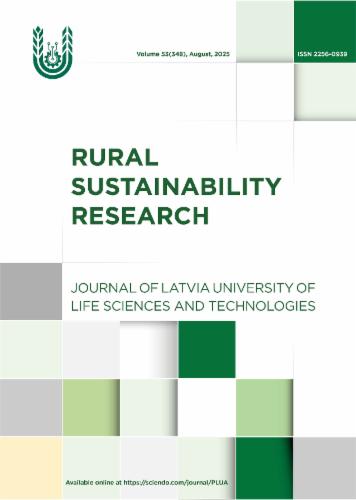Mitigating climate change through agroforestry: exploring perceived efficacy, cues and practices in a community of Nigerian farmers
Pubblicato online: 01 set 2025
Pagine: 109 - 121
Ricevuto: 19 gen 2023
Accettato: 11 apr 2025
DOI: https://doi.org/10.2478/plua-2025-0010
Parole chiave
© 2025 Fausat Motunrayo Ibrahim et al., published by Sciendo
This work is licensed under the Creative Commons Attribution-NonCommercial-NoDerivatives 3.0 License.
This study investigates the perceived efficacy of agroforestry as a climate change mitigation strategy and other motivating factors influencing farmers’ adoption of agroforestry practices, specifically in Oyo State, southwestern Nigeria. A survey involving 400 respondents utilized structured questionnaires to gather data. Statistical analyses, including independent samples t-test and one-way ANOVA, were employed to assess differences in agroforestry practices based on gender and age/education sub-groups. The relationship between perceived efficacy, cues to agroforestry, and agroforestry practices was examined using the Pearson correlation coefficient. Findings indicate that while 83.0% of respondents had previously engaged in agroforestry, current engagement reduced sharply to 42.8%. Gender significantly influenced agroforestry practices, with women at a disadvantage (
